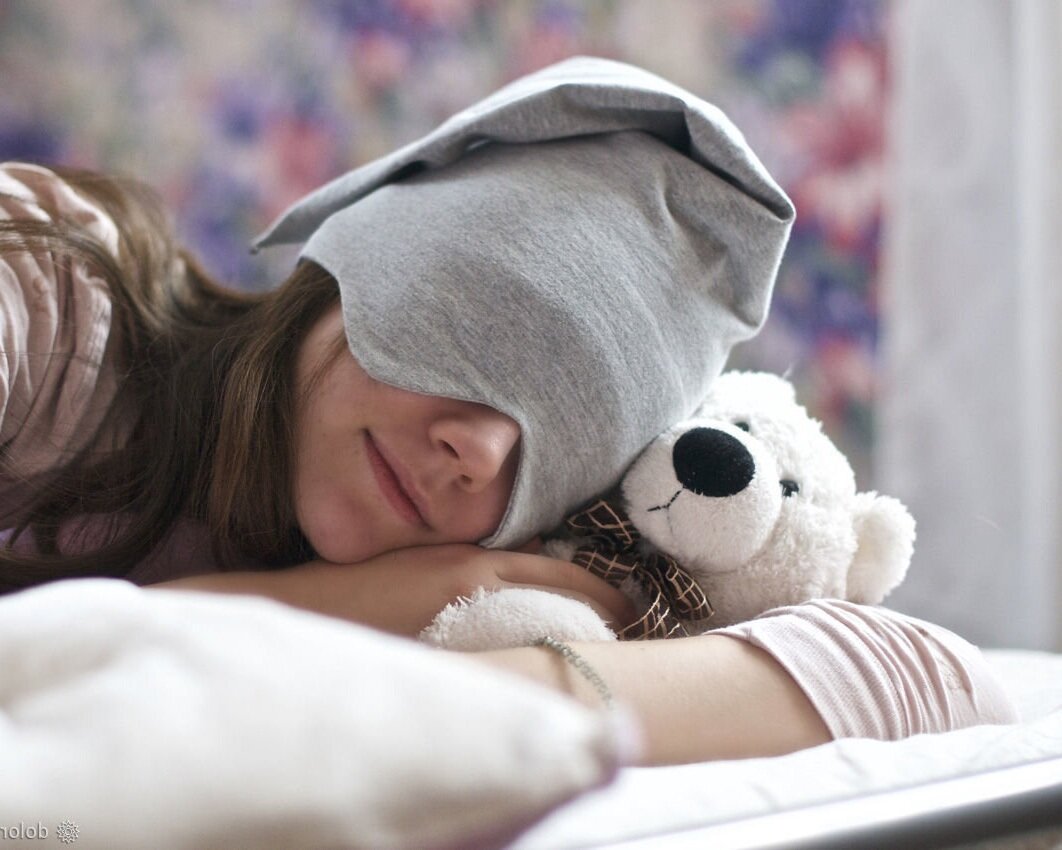Why sleep in total darkness?
Why sleep in total darkness?
There are good reasons to hang blackout curtains at home, turn off the lights at night, and not read on your tablet before bed. Sleeping in complete darkness keeps you young, reduces your risk of cancer, and supports your immune system.
Modern bedrooms are filled with light - the flickering of a monitor and electronic clock, street lighting. The problem is that constant exposure to light leads to health problems.
To understand why light at night is detrimental to health, you can turn to history. Until artificial sources of illumination filled a person's life, there were only two "lamps": during the day - the sun, and at night - the stars, the moon, and a fire.
This formed the human circadian rhythms, which, despite the change in lighting, still regulate the states of sleep and wakefulness. Today, nighttime artificial lighting breaks centuries of human habits. Not as bright as sunlight, but brighter than light from the moon and stars, it triggers a whole cascade of biochemical reactions, including the production of cortisol and melatonin.
Melatonin and cortisol
Melatonin production is key to understanding why artificial lighting is so harmful. This hormone is only produced in the pineal gland when it is completely dark and is responsible for the sleep-wake cycles. Melatonin lowers blood pressure, body temperature, and blood glucose levels; that is, it does everything to provide the body with a restful deep sleep.
The human brain has a part responsible for the biological clock - the suprachiasmatic nucleus in the hypothalamus. This is a group of cells that reacts to darkness and light, and sends signals to the brain when it is time to fall asleep and wake up.
In addition, the suprachiasmal nucleus (SCN) is responsible for the change in body temperature and the production of cortisol. During the dark hours of the day, the amount of cortisol decreases, allowing us to sleep, and during the day it rises, regulating the level of energy.
All these processes are natural, but artificial lighting at night confuses them. The body reacts to light and raises cortisol levels at night, making it more difficult for a person to fall asleep. In addition, high levels of the "stress hormone" reduce the body's resistance to insulin and inflammation. As a result of the fact that cortisol is not produced on time, appetite and sleep are disturbed.
However, the level of hormones is regulated not only by the amount of light at the moment, but also by how much light you received before.
What is the role of melatonin in the life of the body?
The role of melatonin in the body of any person is very great. It performs the following list of useful functions:
Melatonin has a beneficial effect on the state of the human immune system, being a natural immunomodulator. A strong immune system helps to increase the body's resistance to stressful situations and colds;
Responsible for the good performance of the endocrine system;
Melatonin prevents premature aging of the body.
A decrease in the level of melatonin in the human body negatively affects the process of cell regeneration, so a person begins to age quickly. As a result of experiments conducted on rodents, it was proved that with the introduction of an additional amount of melatonin in old age, life expectancy increases by almost a quarter;
Melatonin is of great importance in the fight against oncological neoplasms;
Melatonin - a hormone that makes it easier to fall asleep;
The hormone has strong antioxidant properties;
Participates in the formation of other types of hormones in the body;
Has a beneficial effect on the state of the brain at the cellular level;
Melatonin - a hormone responsible for regulating blood pressure;
With a deficiency of melatonin in humans, insulin sensitivity decreases, which contributes to the development of obesity and diabetes mellitus;
In people whose body produces an insufficient amount of the hormone melanin, the risk of developing cardiovascular diseases increases by about 50%;
In people whose activities are associated with frequent jet lag, melatonin ensures the restoration of their natural daily biorhythms.
If you feel tired in the morning, constantly feel sleepy, and have very low performance, your doctor might advise you to take a melatonin test.
Is dim light harmful to health during sleep?
Even dim light during sleep is unhealthy. Unfortunately, bedroom lights don't have to be bright at night to be detrimental to health. Even dim lighting is enough. Studies in hamsters have shown that dim light at night can cause depression.
Hamsters exposed to dim light at night showed less interest in the sweet water they love so much. However, when the lights were removed, the hamsters returned to their previous state. In addition, constant dim light in the bedroom has a negative effect on immunity, since the level of melatonin decreases, and along with it, immunological parameters deteriorate.
That is, if you have a backlit electronic clock in your bedroom or other luminous devices that work all night, this is a reason to think about whether they are so necessary. And that's not to mention the constant light from street lighting that enters the window when there are no blackout curtains.
How to rule out melatonin deficiency?
We found out that sleeping with light is harmful, as it can create a melatonin deficiency in the body. For this hormone to be produced in sufficient quantities, it is necessary:
Turn off all equipment with indicator lamps in the bedroom. Turn off all lights at night, even the dimmest night lights.;
Remove from the bedroom anything that glows in the dark, including clocks, electronics, gadgets, and any relaxation lamps like the "starry sky" that you leave on overnight;
If it is difficult to fall asleep in complete darkness, it is worth purchasing a night light with a timer, which after a certain time will turn off the device;
Don't read on your tablet or smartphone before bed, or take them into the bedroom at all;
Install blackout curtains or close blinds to prevent street lighting from entering the room;
Buy a special sleep bandage and sleep with it, the quality of your sleep will improve markedly;
Try to change your job to one where there are no night shifts.
Sleeping in complete darkness is pleasant, even simply psychologically, because it brings a feeling of perfect calmness and detachment from the world. And let the stable production of melatonin be a great bonus for your health!
NOTICE! It is important to remember that melatonin does not accumulate in the body, i.e. you cannot sleep for several days and stock up on melatonin. It is important to regularly stay asleep and wakeful, and monitor your diet. You should include foods containing tryptophan, which is necessary for the production of melatonin. This substance is found in bananas, dairy products, tomatoes, and nuts.
It makes no sense to go to sleep after 3 a.m. - melatonin synthesis will not occur at this time, but you will spend the whole next day feeling tired, fatigued and drowsy.













